Indie Monthly: May 2024
Seven awesome new indie games to add to your backlog

Greetings from the Middle Kingdom! The uncertainties of life has forced me to relocate yet again. The past month has been one of extensive travel, intrusive medical tests, bureaucratic redundancy, and general aggravation.
But indie developers never sleep (literally, in a few cases) and there's another fine crop of games ready for May. This month, we have a selection that includes an innovative narrative title, an old-school puzzler with a new school twist and a roguelike horror game.
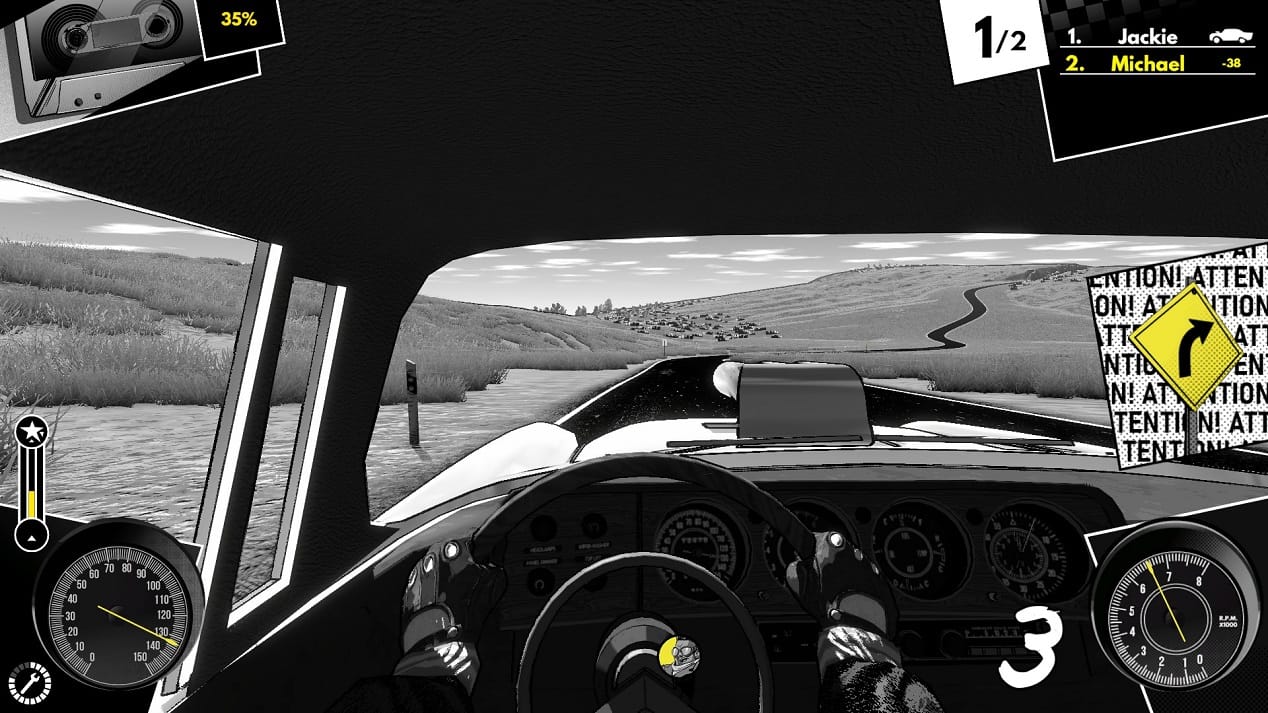
Heading Out
You've been haunted by the same dream for a while, one that always ends the same way - with your grisly death in a horrific car crash. You awake to the sight of a ghostly car driven by the best driver alive, and are compelled to find him for one final race. The police and the media know you as the Interstate Jackalope, a persistent lawbreaker menacing the roads with your reckless driving. But going slower isn't an option - not with what's chasing you at all times.
Heading Out is a narrative game themed around a cross-country trip. While races are a significant part of the game, it is not really a driving game at heart. Rather, Heading Out is focused more on the stories of the road. Resource management, risk management and moral choices all play into the plot.
Each run begins in Michigan, with the player tasked with reaching a certain city that gets progressively farther away as the story advances. The player selects routes, completes objectives and wins races to earn money, and tries to avoid catching the attention of the state police. As this is happening, the player's "fear" is coming up from behind, blocking off routes and keeping the game moving forward.
The driving controls are tight enough to win the necessary races, but again, this isn't a racing game. Heading Out is about its narrative, one rooted in the American romance of the road. The player has to make choices which are then reflected in the color commentary provided by the game's talk radio personalities, all parodies of notorious talking heads and shock jocks. Add in the distinctive black-and-white aesthetic, and you have a game that moves between satire, surrealism and horror in a style reminiscent of the underrated game Where the Water Tastes Like Wine.
Heading Out doesn't play like a lot of recent narrative games, but that's part of the appeal. If you're looking for something with its own storytelling flavor, this is exactly what you want.
Heading Out is available for PC via Steam. A copy was provided for this review.
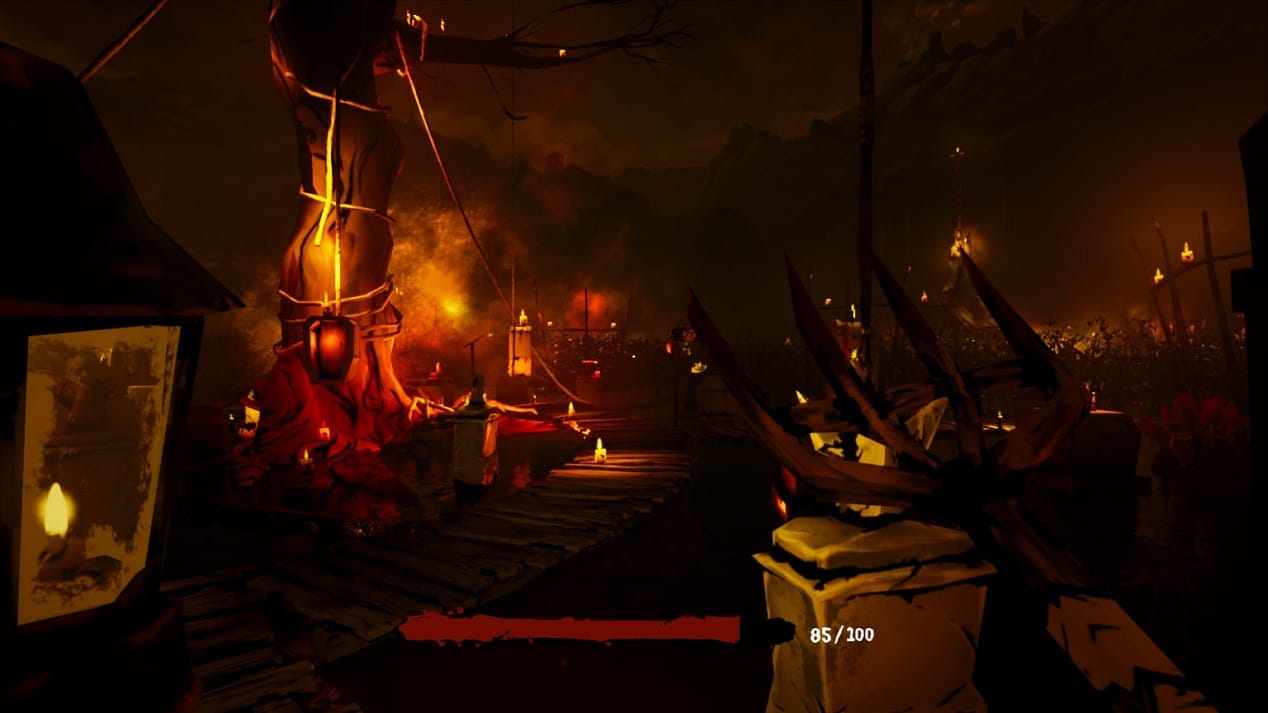
Harvest Hunt
Few people know about the lost village of Luna Nova. Established as a refuge against the Black Plague, the village soon became host to a different sort of evil. The sole source of sustenance in Luna Nova is a plant called Ambrosia, one that also attracts a hideous worm-like monster called the Devourer. Each harvest season, a villager is chosen to act as the Warden, tasked with protecting the harvest and the village. It falls to you to wear the Warden's mask and keep the village going for another year.
Harvest Hunt is a first-person horror game with some roguelike elements. The goal is to survive the five nights of the harvest season while collecting enough Ambrosia to keep Luna Nova fed. The map stays the same but everything else changes, including the attributes of the Warden and the Devourer.
There are some options in how one approaches the game. It's possible to fight the Devourer and even temporarily banish it from the map by taking pieces of its body and placing them in the effigy in the center. This is easier said than done, however - the slow speed of the protagonist and the ineffectiveness of available weapons means that the Devourer needs to be fought by ambush, a risky proposition. More likely you'll find yourself taking a stealthy approach, gathering as much Ambrosia as you can before finding a way out of the map. But this approach also requires speed, as the Devourer will ruin any Ambrosia that it finds.
At heart, this is a game about tactics. You won't be able to rush through the game - you have to figure out an approach and understand when to take risks. Since the Warden's traits change each night, you'll also have to be flexible in how you approach the game.
Unlike some other horror games, Harvest Hunt doesn't rely on cheap startle scares but rather creates a sense of dread through its dreary, often disturbing environments. Adding to this is extensive lore on the village and the Wardens, which is unlocked by completing seasons. There might just be more going in Luna Nova than you think, but the only way to figure that out is to survive.
Harvest Hunt is available on PC via Steam. A copy was provided for this review.
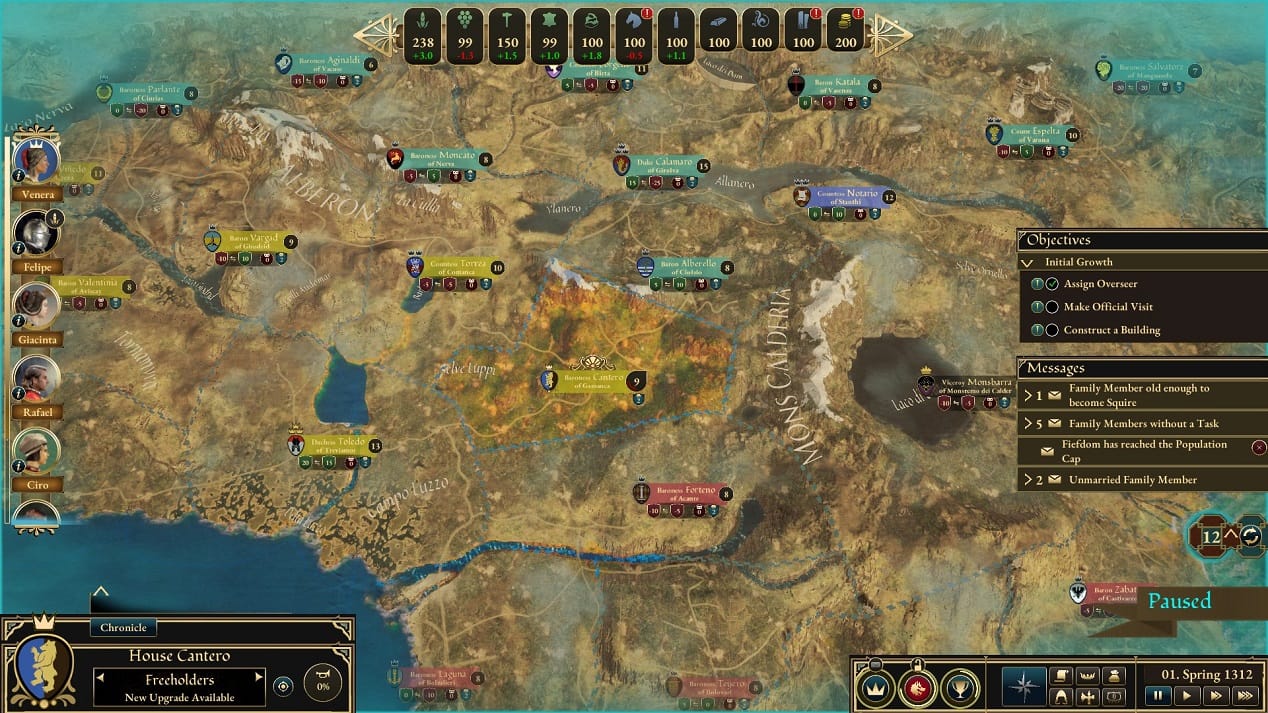
Great Houses of Calderia
The Empire of Calderia was once a paradise. No one knows what led to its downfall - the crisis was so dire that none dared speak of it - but it was connected to a foreign land now considered forbidden. The current Emperor, dreaming of a renewed Calderia, has given sanction to the empire's noble families to once again settle those forbidden lands. As the head of one of those noble families, your goal is to seize as much power as possible for yourself, all while avoiding the ire of your own tyrannical viceroy.
Great Houses of Calderia is a strategy/RPG hybrid, very much in the vein of the Crusader Kings series. Taking control of a small fief, the player's goal is to expand their power within the kingdom. Much of the work is accomplished through the player's relatives, who have their own social connections as well as different talents for diplomacy, management, intrigue and combat.
There are a few different mechanical layers for different tasks. Internal management is a matter of assigning workers to different tasks while using relatives to keep production and happiness high enough to encourage growth. Meanwhile, both martial and diplomatic disputes are settled through minigames which add a tactical layer to the gameplay. But most of the interactions are conducted between members of the royal family, so managing their relations is critical to success.
Overall, Great Houses of Calderia is a bit more accessible than your typical Paradox game and the different play modes add some value. However, veterans of other grand strategy games might find the gameplay a little restrictive and simple.
Great Houses of Calderia is available for PC via Steam. A copy was provided for this review.
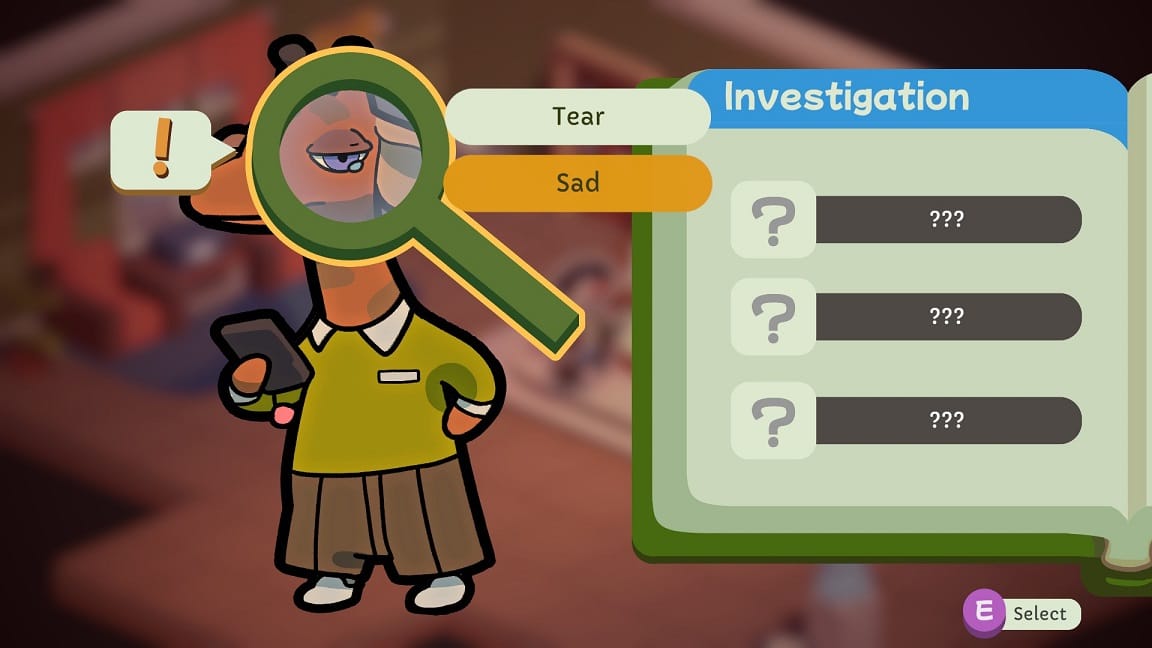
Duck Detective: The Secret Salami
McQuacken is a duck down on his luck. Once a respected police officer, he now makes a living as the famous Duck Detective, a PI with empty pockets and a nasty white bread habit. He has just spent most of his money to reach the headquarters of a bus company to investigate a lunch thief. What he actually finds is a deeper mystery - a kidnapping, a smuggling operation, and a conspiracy that could involve anyone.
Duck Detective: The Secret Salami is a detective-themed adventure game. Rather than the key-and-lock puzzles that have traditionally defined the genre, Duck Detective is based around investigating people and objects for clues. Investigations turn up key words which are later used to complete fill-in-the-blank deductions. Not all of the necessary information turns up through conversations, so the player needs to be observant to catch anything.
Which is not to say that the game is particularly hard. As you may have guessed from the story and the paper doll visual design, Duck Detective is a very light-hearted game across the board. It's an easygoing experience as well - even on the more unforgiving mode that provides fewer clues, the typical player will finish the game in around two hours.
Duck Detective: The Secret Salami is available for PC via Steam. A copy was provided for this review.
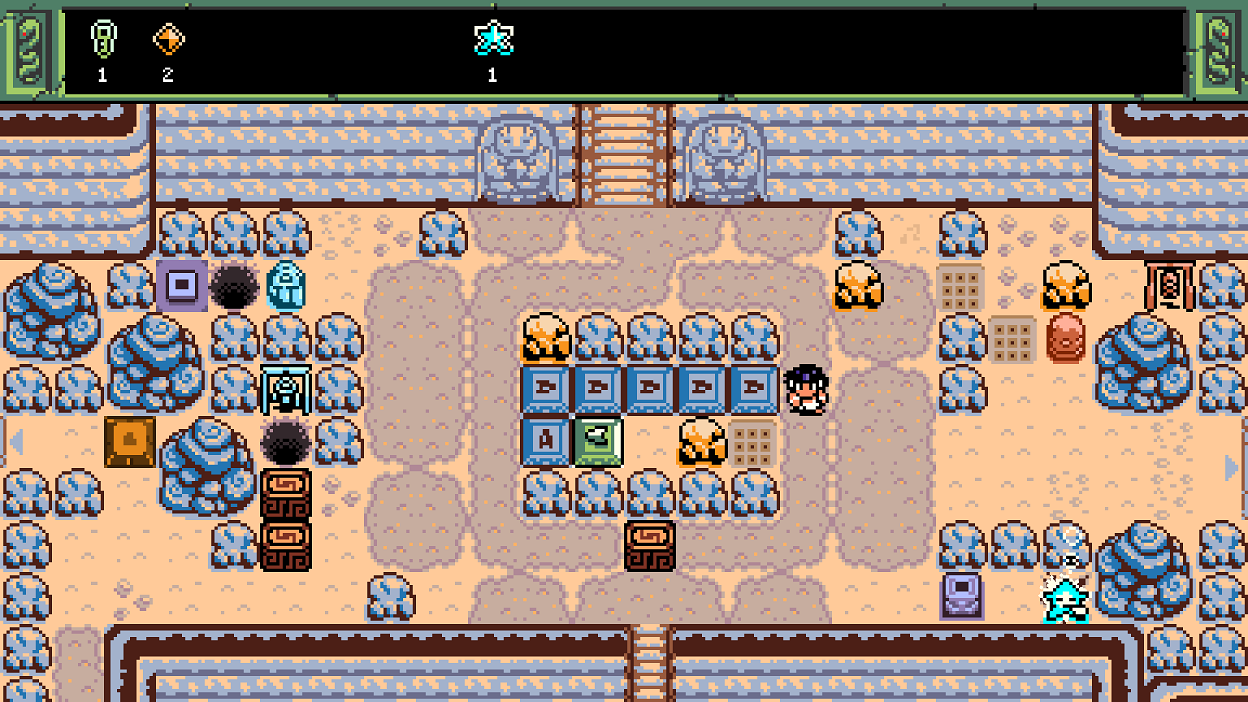
Isles of Sea and Sky
You have awakened on a remote island somewhere far into the uncharted ocean. You're still hazy on how you got there, but the important part is how to get off. The island is rich with mysteries - strange doors, ghostly women, unknown deities - and you'll need to unlock all of its secrets if you ever want to get home.
Isles of Sea and Sky is a top-down puzzle game with an 8-bit feel. While the aesthetics recall several other action-adventure games (most notably the GBC Zelda titles), this one is purely about its puzzles. There's no combat to speak of, you're just trying to master the puzzle on each screen.
The puzzle mechanics (and the controls) are deceptively simple. The protagonist can push objects and that's about it. However, there are an enormous number of puzzle elements that make things more complicated. There are switches, floor obstacles that allow one-way travel, boxes that behave in different ways, moving floors, teleporters, and a lot more. The puzzles are fair, but they can be a real challenge.
One thing that makes this gameplay style feel better is that Isles of Sea and Sky is designed as a semi-open world experience. None of the puzzles are mandatory. Clearing a puzzle unlocks resources that are used to advance deeper into the story, but if a screen is proving too difficult, the player can always skip it and find those needed resources elsewhere. It's a small change, but one that makes the game a lot less frustrating than some of its predecessors were.
Overall, Isles of Sea and Sky is a game custom made for fans of old-school NES and SNES-style puzzle games.
Isles of Sea and Sky is available for PC via Steam and Itch. A copy was provided for this review.
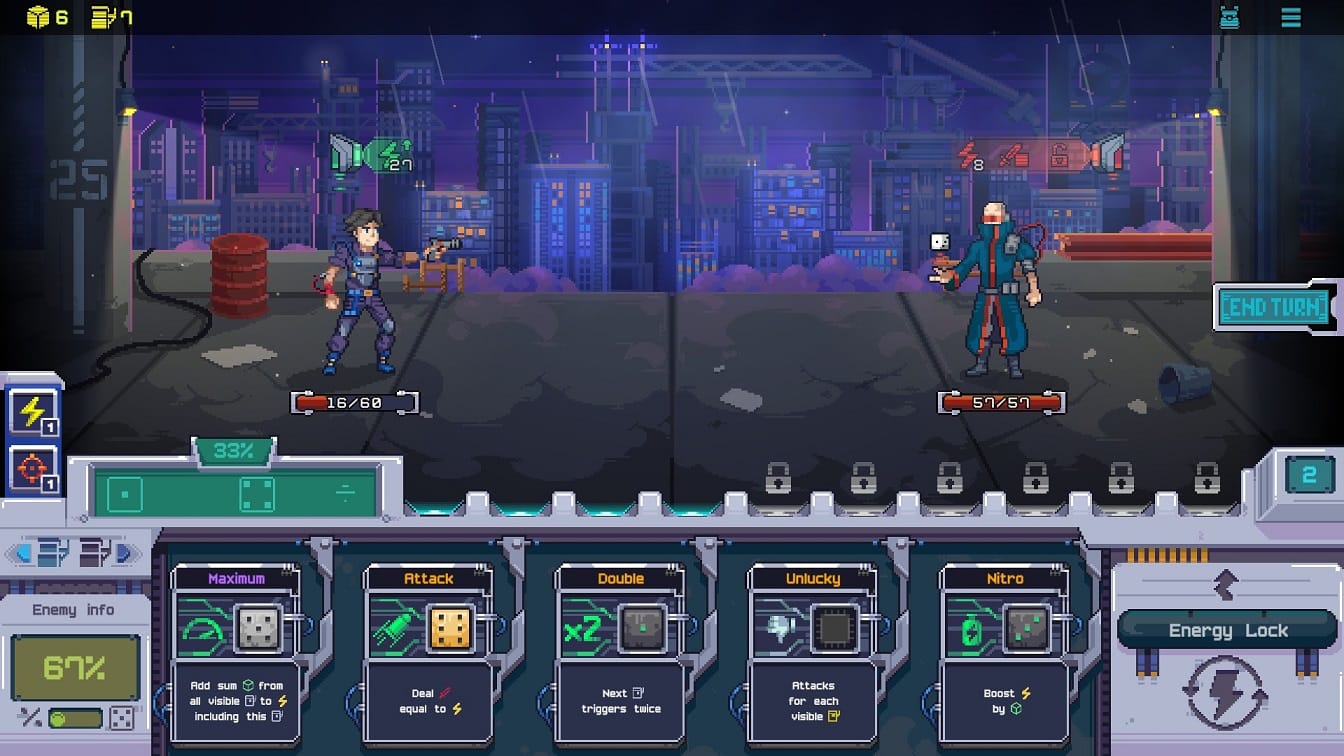
Perfect Dice
In the not-too-distant future, society has found an unusual way to achieve equality: Random chance. Choice is a thing of the past, with people forced to decide based on a dice roll. There is said to be just one way out of the system - the perfect die, a relic located at the top of an old corporate tower. You've decided to make a play for the perfect die, but that's easier said than done - after all, the fight against chance is never fair.
Perfect Dice is the latest in the ever-growing deckbuilder genre. Rather than going with cards or dice, Perfect Dice uses both. The character has a set of ability cards which are activated using randomly drawn dice, which in turn determine what (if anything) the card does. The numbers that count as successes change every turn, and rolling a successful number removes it until the turn ends.
The system is more complex than you might be used to seeing in similar games. The odds of a card doing anything tend to decline with each success, but playing special dice can change or flip the odds. Some cards have a different effect depending on what other cards have been played or are visible in the player's hand. Failures can also have their own effects, and sometimes it's worth it to try and deliberately blow a roll to get a greater effect later on.
Perfect Dice is a bit of an advanced game, even by the hardcore standards of the genre. Good strategies and builds aren't always obvious and the influence of chance is brutal until you've mastered the mechanics. This is definitely a game for people who've played other dicebuilders such as Astrea and have a handle on manipulating luck.
Perfect Dice is available for PC via Steam. A copy was provided for this review.
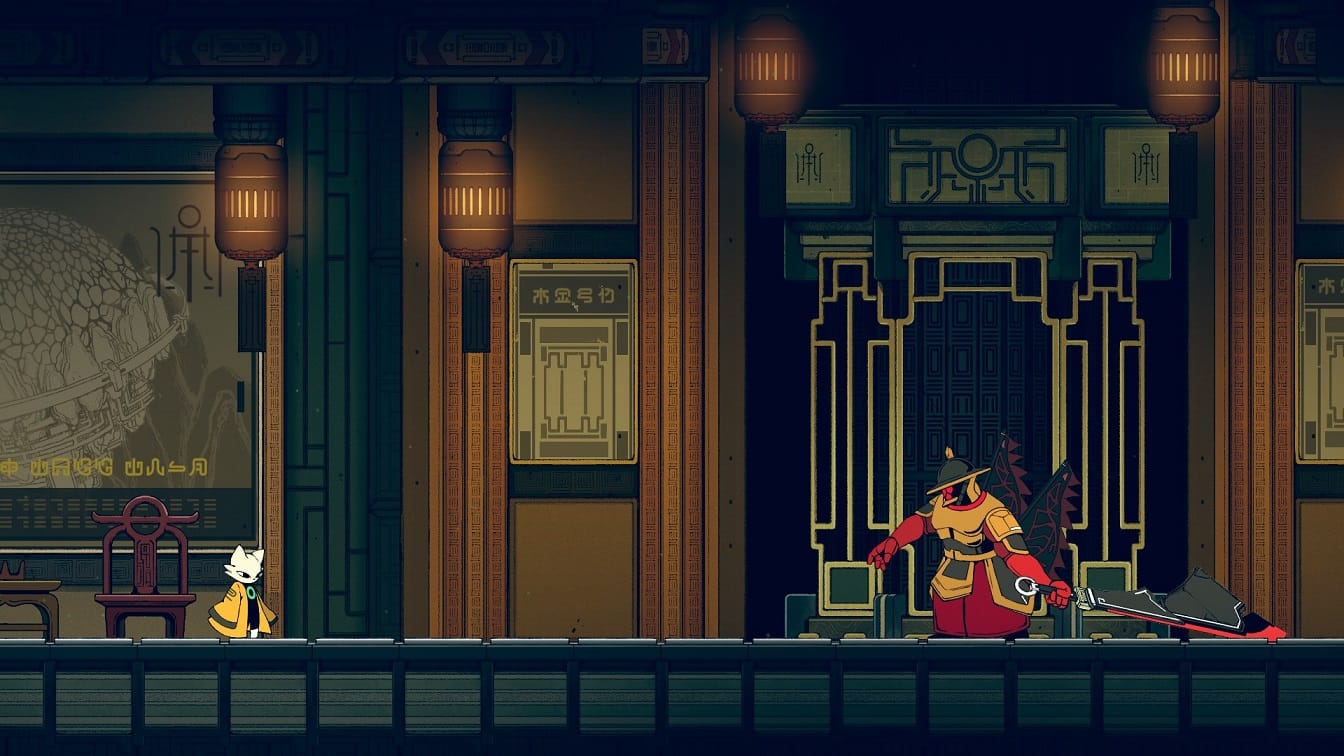
Nine Sols
The world of humans changed when the warrior Yi entered their domain. The villagers thrive on rituals meant to bring them closer to the Sols, the gods who watch over them. But Yi knows the truth - the Sols are tyrants ruling over a sleeping empire, ruthlessly harvesting life forms for the energy in their organs. Yi was nearly killed by the Sols when he last invoked their wrath. This time, he'll have to be more thorough.
Nine Sols is an action platformer with combat designed after that of Sekiro. Yi has a standard attack combo and dodge, but the central mechanic is a parry. Careful timing enables Yi to not only stop most attacks, but to follow up by planting an qi-infused explosive rune on the target. Use of the parry isn't strictly necessary (at least not until you get to the bosses), but tougher encounters get a lot easier if the player has mastered the skill. There are other approaches to combat, and even stealth is somewhat viable as it's possible to sneak up on a target for a surprise attack.
Nine Sols is sort of a Metroidvania-lite - Yi gains new movement skills at select parts of the game, but the focus is more on technical combat than platforming or exploration. Do be prepared for some challenging platforming, though - while the game is relatively forgiving in that a mistake usually isn't instant death, some sequences do require very tight controls.
I'd be remiss if I didn't mention the graphical style. Nine Sols is described as a "Taopunk" - set in the future, but featuring a lot of classical Chinese iconography. Standard enemies are designed to resemble imperial soldiers, while many major enemies and allies are based on Daoist immortals or mythical figures from Chinese history. The graphics and music both feature an otherworldly, often surreal vibe that is very unlike anything else on the market right now. It's an aesthetic that can keep you playing just out of curiosity and wonder.
Nine Sols is available for PC via Steam. A copy was provided for this review.
Comments
Sign in or become a SUPERJUMP member to join the conversation.
